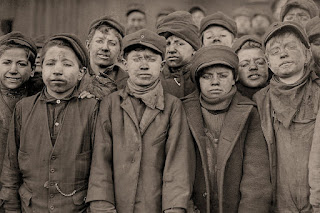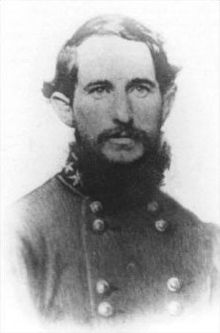Major General J.E.B. Stuart
I just finished reading the book Year of Glory by Monte Akers. The book deals with Jeb Stuart's military career from June 1862 to June 1863. I'll be the first to admit that I've never been a very big Jeb Stuart fan, but Monte's book has since changed my mind. I couldn't put the book down. I even read several parts of the book to my wife and she said, "He was your clone."
Working on the railroad I earned the nickname "Instigator" because of pulling pranks and jokes on people and enjoying a good laugh. Jeb was much the same way. This book is full of funny stories about some of Jeb's funnier moments. I'd always read how Jeb was seeking personal attention when he left Lee's Army blind in Pennsylvania during the Gettysburg Campaign. Monte Akers helps explain how and why things occurred the way they did. He doesn't do like most biographers and attempt to make his subject sinless, but points out that Stuart was human and prone to make mistakes. The book is a great read and I highly recommend it. I could hardly put it down and there is a part two to this book that I'm already in the process of purchasing. Book two covers from Gettysburg until Stuart's death and if it's half as good as this book, it will be a great book.
There are several interesting stories and many are commical, especially the story of a Prussian staff officer sitting on a wet painting, but there was one story that particularly interested me. In the chapter on Chancellorsville, Stuart and his staff camped beside a barn that served as a field hospital for Federal soldiers. The Prussian volunteer staff officer named Scheibert made a note of the difference in wounded Confederate soldiers and wounded Federal soldiers. According to Scheibert, Confederate soldiers considered it a disgrace to groan aloud when they were wounded, but suffered stoically in silence. He said a person could tell if the hospital was Federal or Confederate by the sounds. Scheibert mentioned meeting a captain walking to the rear during a battle with his hat covering one hand. Scheibert asked the captain if he was severely wounded, there being a great deal of blood on the officer's uniform. The captain replied, "No, only the hand is gone." Scheibert went on to mention other instances to back his claims that Southern soldiers took wounds with little complaint while the Federal soldiers groaned and cried aloud.
I'm not trying to say Southerner's are tougher or stronger than Federal soldiers. It was the Southern ideal of honor and bravery that made them act in such a manner even when they understood their wound was mortal. According to the book Attack and Die by Grady McWhiney and Perry Jamieson all of this was a direct result of Southerner's ancestry. The descendants of the Celtic people mostly settled in the South. The Celt's were a warring people. Take that and have part of the population intermarrying Native American's and you have yourself a perfect fighting machine.
Again, I highly recommend Year of Glory by Monte Akers. I have come away with a completely different view of Major General Jeb Stuart and now I must have the next book.












